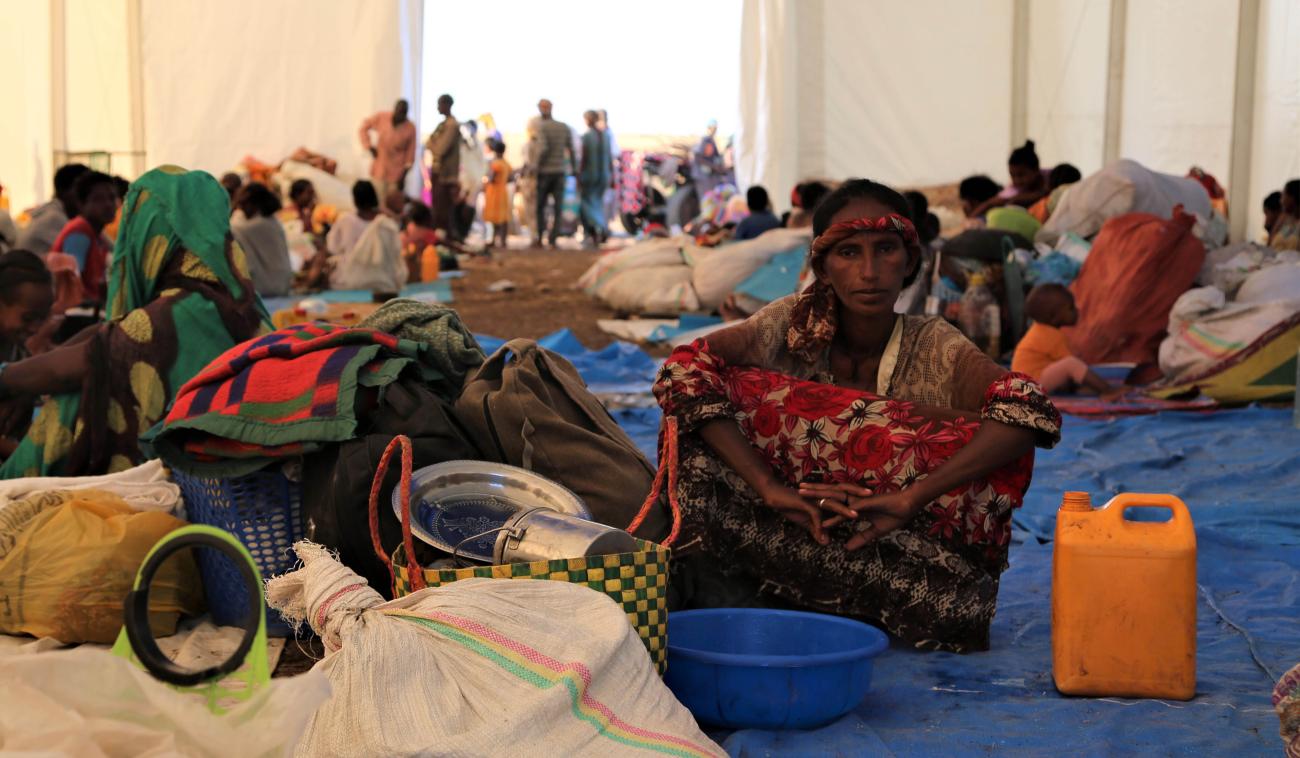Tigray’s crisis: UN-supported camps are helping Ethiopian refugees, but more is needed

Tens of thousands of refugees are crossing the border from Ethiopia to Sudan, fleeing conflict in Ethiopia’s Tigray region.
Khartoum/Gedaref/New York, 18 November — UN officials and government authorities from Sudan today are finishing a two-day visit to the eastern border, where tens of thousands of Ethiopian refugees have entered the country, fleeing violence.
“Seeing families and children sleeping in the open was heartbreaking,” reports Babacar Cisse, UN Resident and Humanitarian Coordinator in Sudan, who led the mission.
Mr. Cisse — along with the Country Representatives of the UN Refugee Agency (UNHCR), the World Food Programme (WFP), the UN Children’s Fund (UNICEF), and the UN Population Fund (UNFPA) — joined Government officials in a mission to assess the situation in refugee camps in the southeastern region of Sudan.
Tens of thousands of Ethiopians are fleeing violence in their country’s Tigray region, just across the border. The Resident coordinators and UN teams in three neighboring countries — Eritrea, Sudan and Djibouti — are working together to address the situation and stress that no efforts should be spared to prevent this from becoming a regional crisis.
So far, the largest number of refugees are entering Sudan at the small town of Hamdayet. UNHCR reported that the first Ethiopian asylum-seekers arrived in Sudan on 9 November, with some 7,000 people crossing the border in a 24-hour period. More than 30,000 have now arrived in the country through the Hamdayet border in Kassala State, the Lugdi in Gedaref State, and a new location further south at Aderafi border, where Ethiopian refugees started crossing over the weekend.
UN officials and authorities visited the Hamdayet Reception Centre, where an emergency response has been set up to register and provide assistance to thousands of women, children and men crossing into Sudan.
“This crisis started on 7 November. After a week, we had about 20,000 and now over 30,000 refugees,” Mr. Cisse explained. “People were in reception centres for registration before being relocated in refugees camp. We are committed to immediately addressing this urgent challenge.”
At their arrival in the camp, refugees can access clean water and soap. They received hot meals and high-energy food supplies. Facing the influx of refugees, the camp is building more latrines. About 250 people have already been relocated from Hamdayet to Shagarab camp in Kassal, and are being provided with one-month rations.
Today, the UN delegation and authorities were at the Um Raquba camp where refugees are being relocated to decongest the border point and to ensure their safety. The camp currently hosts over 4,440 Ethiopians and is prepared to accommodate 10,000 people. It is being expanded to shelter an increasing number of people arriving from the Tigray region.
UN officials says it is now critical to identify additional sites so that refugees can get away from the border and receive assistance and access to essential services such as healthcare, food, and shelter. To support UNHCR with cooking, WFP delivered cooking pots, water tankers, pallets, and one mobile storage unit. But the main concern is about the hygiene conditions as more and more people arrive.
Tigray is Ethiopia’s the third most-affected region in terms of COVID-19. The UN is concerned with the movement of people and the risk this entails for the spread of pandemic. Since the beginning of the conflict, all systems of surveillance have broken down, with a lack of communications and access to health facilities.
Looking ahead to the coming months
In coordination with the humanitarian agencies, the development of a response plan targeting 200,000 individuals for a 6-month period was recently launched. Food to support 60,000 people for one month is being prepared for delivery from Kassala a few days ago. Additional tonnage is being dispatched to meet the need.
Effective yesterday, the United Nations Humanitarian Air Service (UNHAS), managed by the WFP, is chartering daily flights to Kassala to support movement of response teams.
The most urgent needs are food, clean water, and shelter, said Mr. Cisse. The UN and partners are providing health and nutrition services, as well as hygiene and other non-food kits, and are working non-stop to address the needs of the population. This includes supporting pregnant women, those who are breastfeeding, traumatized children and others who immediately need psychosocial assistance.

